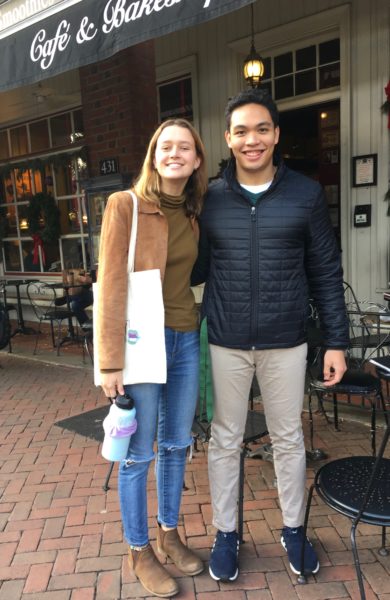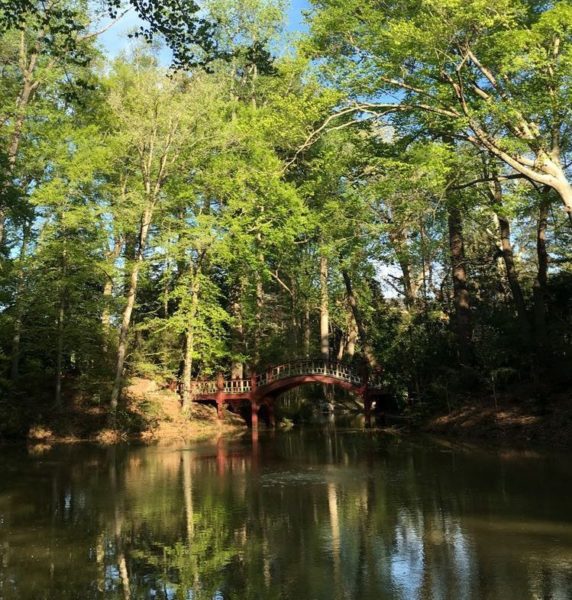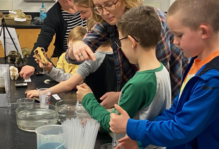Climate Action Partnership with UVA for a 2030 Carbon Neutrality Goal
By Emma Rebour ’21
When I first set foot on William & Mary’s campus in the fall of 2018, I had no idea what my experience at the university would entail. The only thing I knew for certain was that I was passionate about environmental science and wanted to get involved in any sustainability organization I could find. As a transfer student, it took me a while to get adjusted and to find my place on campus. I had to work extra hard to make friends, build connections, and get involved in the multitude of clubs and organizations W&M has to offer. At the beginning of the year, I went to the club fair and perused all of the stands in Kaplan Arena, scanning for any organizations related to sustainability. I was astounded by the variety of clubs I saw, and most importantly the passion held by their members. By the end of the fair, I had signed up for a poker group, club soccer tryouts, and a few environmental groups. Although I ended up playing club soccer for a while, none of the other clubs really stuck, and I still didn’t know what my sustainability journey would look like on campus.
It wasn’t until the winter of 2018 that I would see an opportunity to intern with the Office of Sustainability. I remember walking to Bridges House in my big puffy coat on a chilly, yet sunny Williamsburg day for the chance to interview for the position. Accepting the offer to intern with the Office turned out to be a pivotal point in my college career. The friendly staff, variety in projects, and work-at-your-own-pace nature of the Office makes it a great place to work. I feel very lucky to have joined the team when I did, because shortly thereafter the university made several exciting announcements that put sustainability at the forefront of William & Mary’s agenda.
Having focused much of my studies on the current climate crisis, I find William & Mary’s commitment to carbon neutrality by 2030 to be incredibly exciting. To achieve this ambitious goal, a Climate Action Partnership has been formed with the University of Virginia. This partnership aims to pool the two universities’ resources together to more effectively and successfully reach the 10-year goal of carbon neutrality. This extensive collaboration between the universities will involve faculty, staff, professors, engineers, and even you – the students! Although this upcoming year will be different from others in its structure, there will still be ample opportunities for students to get involved in sustainability projects outside of their classes. I have already begun brainstorming with a student intern at UVA to see how we can help put students at the forefront of the Climate Action Plan and foster collaboration between our student bodies.

Back in 2019: Emma Rebour ’21 and Josh Panganiban ’20, another involved sustainability intern!
The announcement of 2030 carbon neutrality, paired with the University of Virginia partnership, has shown me that sustainability is one of William & Mary’s top priorities. Although the path that lies ahead will inevitably be challenging, I look forward to the collaboration, problem-solving, and creativity that this new partnership will spawn. In the midst of the current pandemic, which has highlighted tremendous inequality and strife across our country, it is our responsibility to do our part. Globally, the most vulnerable communities are already feeling the effects of the climate crisis, and it is on us to carry some of the weight. Together, we may not be able to tackle the climate crisis as a whole, but we can do our part at William & Mary to work towards carbon neutrality, push for fossil fuel divestment, and ultimately make our campus a healthier and happier community.
As students, the best way for you to get involved is to keep your eyes peeled for updates! Read W&M’s email digest “Student Happenings,” even if they’re long. Check out the Office of Sustainability’s website and follow us on social media (@wm_sustainability)! If you have an idea for a sustainability-related project at William & Mary, check out the Green Fee, a fund set aside in our tuition to support sustainability initiatives! Most importantly, remember that sustainability is intersectional. Although environmental issues may not be your passion, mental health, public health, social justice, and many other fields directly tie into sustainability and acknowledging those links are extremely valuable. In any case, we value student feedback and look forward to your comments, thoughts, and ideas as this partnership moves forward.




No comments.
Comments are currently closed. Comments are closed on all posts older than one year, and for those in our archive.